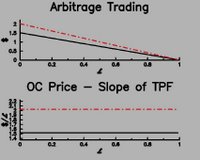“When it comes to adultery, it’s 90 percent the woman’s responsibility. Why? Because a woman owns the weapon of seduction. It’s she who takes off her clothes, shortens them, flirts, puts on make-up and powder and takes to the streets, God protect us, dallying. It’s she who shortens, raises and lowers. Then, it’s a look, a smile, a conversation, a greeting, a talk, a date, a meeting, a crime, then Long Bay jail. Then you get a judge, who has no mercy, and he gives you 65 years.”
“But when it comes to this disaster, who started it? In his literature, writer al-Rafee says, if I came across a rape crime, I would discipline the man and order that the woman be jailed for life. Why would you do this, Rafee? He said because if she had not left the meat uncovered, the cat wouldn’t have snatched it.”
“If you get a kilo of meat, and you don’t put it in the fridge or in the pot or in the kitchen but you leave it on a plate in the backyard, and then you have a fight with the neighbour because

his cats eat the meat, you’re crazy. Isn’t this true?”
“If you take uncovered meat and put it on the street, on the pavement, in a garden, in a park, or in the backyard, without a cover and the cats eat it, then whose fault will it be, the cats, or the uncovered meat’s? The uncovered meat is the disaster. If the meat was covered the cats wouldn’t roam around it. If the meat is inside the fridge, they won’t get it.”
“If the woman is in her boudoir, in her house and if she’s wearing the veil and if she shows modesty, disasters don’t happen.”
“Satan sees women as half his soldiers. You’re my messenger in necessity, Satan tells women you‘re my weapon to bring down any stubborn man. There are men that I fail with. But you’re the best of my weapons.”
“…The woman was behind Satan playing a role when she disobeyed God and went out all dolled up and unveiled and made of herself palatable food that rakes and perverts would race for. She was the reason behind this sin taking place.”
These, according to the Australian SBS news service, are the moral teachings of Sheik Taj Din Al Hilaly. It is stunning in its sexism, patrimony, denial of responsibility and graphic inhumanity. If mere speech should ever constitute a crime, this would be it. But speech alone must never be made a crime, else we all be potential criminals. It is enough in this instance that the man shows himself to be the thoroughly uncivilized beast that his words bear out, and that we shun him for his gross misunderstanding of this age of reason. It just leaves poor old Guambat flabbergasted.He may have apologised to women*, but not to Guambat. What he said is so beyond Guambat's worldview that the Sheik cannot ever undo the disgust that Guambat will forever feel for him. Unless he foresakes his ways, and not just his words, entirely, unconditionally and unswervingly.*Sheik says sorry
"I unreservedly apologise to any woman who is offended by my comments," he said in a statement today. I had only intended to protect women's honour, something lost in The Australian presentation of my talk."
But Al Hilaly would not back away from his comments and said he was shocked by the way his sermon was interpreted.
"I would like to unequivocally confirm that the presentation related to religious teachings on modesty and not to go to extremes in enticements, this does not condone rape, I condemn rape and reiterate that this is a capital crime.
"Women in our Australian society have the freedom and right to dress as they choose, the duty of man is to avert his glance or walk away.

"If a man falls from grace and commits fornication then if this was consensual, they would be both guilty, but if it was forced, then the man has committed a capital crime.
"Whether a man endorses or not, a particular form of dress, any form of harassment of women is unacceptable."
A spokesman for Al Hilaly said the backlash and criticism had badly affected him and he had been depressed and confined to bed all day, breathing with the assistance of an oxygen tank.
The Arabic Gulfnews.com reports:
Hilali is the top cleric at Sydney's largest mosque, and is considered the most senior Islamic leader by many Muslims in Australia and New Zealand.
He said, "I would like to unequivocally confirm that the presentation related to religious teachings on modesty and not to go to extremes in enticements, this does not condone rape, I condemn rape.
He added, "Women in our Australian society have the freedom and right to dress as they choose, the duty of man is to avert his glance or walk away."
Australian Sex Discrimination Commissioner Pru Goward said Hilali's comment was an incitement to rape and added that Australia's Muslims should force him to stand down.
She said, "This is inciting young men to a violent crime because it is the woman's fault. It is time the Islamic community did more than say they were horrified. I think it is time he left."
Prime Minister John Howard condemned the comments. He said, "They are appalling and reprehensible comments. The idea that women are to blame for rapes is preposterous."









